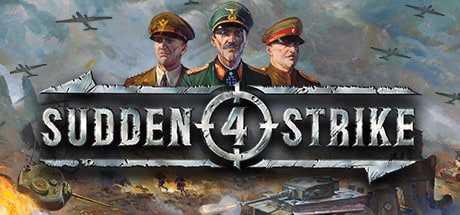

Whether there’ll be similar situations in the rest of the twenty-plus missions that make up the three campaigns of the singleplayer game, it’s difficult to say. That’s one dramatic example as to how Sudden Strike 4 tracks every element of the battlefield, and how each of those elements can have an impact on your tactical approach. Infantry could circumnavigate the wreckage but were soon pinned by enemy fire, and any vehicle larger than a motorbike struggled to get past the memory of my past mistakes in the form of those ruined tanks, nudging at their remains and barely making any progress, even as the turrets of the Russians locked into position for the kill. When I brought up reinforcements, from the rear of the map, navigating that street - the only (previously) clean run to our objective - was all but impossible. The wreckage blocked the road completely. The firefight that followed was swift and messy, as flames and smoke obscured the vision of my retreating infantry, several of which were cut down, and both of my tanks were rendered useless. I sent my tanks rumbling down the road, the infantry and support trucks lingering behind, using the great hulls of their companions as cover.ĭisaster struck when two Russian tanks caught us in crossfire, destroying the tracks on both of my lead vehicles. On the Stalingrad map that I played, clearing a street opened a route straight through to a key objective. Sudden Strike 4 doesn’t care for cleanliness. You could read that as a commentary on the horrors of war, in which men and machines alike are swiftly forgotten in the midst of battle, or you could see it as a way to keep battlefields clean as commanders click and scroll across them. One of the key tenets of most RTS games is that everything is disposable. Sudden Strike 4 is a return to a slower, more thoughtful time. Exceptions existed, with Company of Heroes the most splendid of them, but the wider arena of real-time strategy esemed like a thing of my past for a while. Either way, there was a point when war, whether interstellar or historical, became unmanageable for me. wants to make sure that the family is gotten out as safely as possible, and that high level discussions about that are ongoing.Either RTS games got faster or I got slower. Asked why it was taking so long, Kirby said the U.S.

is working to pay financial reparations to the relatives and surviving family members, and potentially get them out of Afghanistan, but nothing has been finalized.

Officials said McKenzie and Clarke largely agreed with Said’s recommendations. He also recommended that the military improve its procedures to ensure that children and other innocent civilians are not present before launching a time-sensitive strike. He made a number of recommendations, including that more be done to prevent what military officials call “confirmation bias” - the idea that troops making the strike decision were too quick to conclude that what they were seeing aligned with the intelligence and confirmed their conclusion to bomb what turned out to be the wrong car.Īnd he said the military should have personnel present with a strike team, and their job should be to actively question such conclusions. He concluded that better communication between those making the strike decision and other support personnel might have raised more doubts about the bombing, but in the end may not have prevented it. forces genuinely believed that the car they were following was an imminent threat and that they needed to strike it before it got closer to the airport. was working to evacuate thousands of Americans, Afghans and other allies in the wake of the collapse of the country’s government. troops and 169 Afghans at a Kabul airport gate. The intelligence about the car and its potential threat came just days after an Islamic State suicide bomber killed 13 U.S. “When the Pentagon absolves itself of accountability, it sends a dangerous and misleading message that its actions were somehow justified.” “How can our military wrongly take the lives of ten precious Afghan people, and hold no one accountable in any way?” he said.


 0 kommentar(er)
0 kommentar(er)
